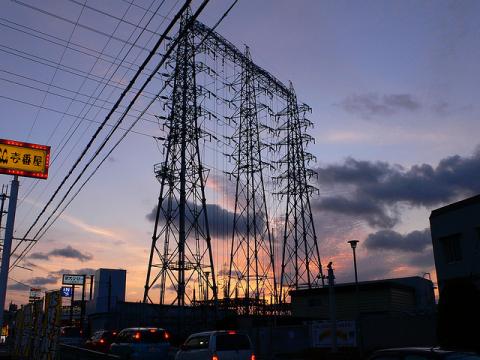Grosvenor and Cambridge University Centre for Sustainable Development have joined together to undertake research into energy efficiency in the built environment (EEBE). EEBE’s focus is on the reduction of primary energy use and carbon emissions in the built environment. According to the International Energy Agency (IEA), existing buildings account for approximately 40% of the world’s total primary energy consumption and 24% of the worlds C02 emissions. There is a great opportunity to make significant reductions in demand, thereby reducing the need for supply, together with the energy costs. Our specific interests are policies to promote energy efficiency in the built environment and developing strategies for the future of energy management. Current and planned research activities target existing buildings and new developments as well as residential and commercial properties, with case studies from the UK and around the world.
Aims
- Explore possible future scenarios for energy efficiency in the built environment towards 2050.
- Examine the interventions needed to overcome the barriers to energy efficiency.
- Contribute to the understanding of the current policy landscape, regulations and performance of energy efficiency in the built environment.
- Promote knowledge exchange between thought-leaders in research, government and business on the theme of energy efficiency in buildings.
The EEBE Consortium
The work is based in the Centre for Sustainable Development which is part of the Department of Engineering, University of Cambridge. Dr Alison Cooke is leading a multidisciplinary team of researchers in close collaboration with other researchers across the university who are undertaking research of relevance to energy efficiency in the built environment. Grosvenor is the principal sponsor of the research programme. Resources are made available from members of the consortium which include: Grosvenor; EPSRC; SIG; Jones Lang Laselle. Other contributors have included; Arthur D Little, Arup, AEA Technology, London Development Agency, Westminster City Council, Cambridgeshire County Council, and Cambridge City Council.
Outcomes
- Inform public debate that will lead to more effective regulatory action.
- Deliver research outputs that have practical relevance which will help property owners/developers and other stakeholders establish optimal strategies for energy management.
- Provide data-based tools which will facilitate the decision-making processes for key personnel, working to improve energy efficiency in the built environment in order to gain competitive advantage.
In July 2012 the Centre for Sustainable Development organised a presentation of the research conducted in the Centre and the University of Cambridge regarding Built Environment Energy Efficiency at Cambridge. The presentations involved energy efficiency in a wide context, the technical aspects of the subject, as well as the management and policy issues involved. See below some posters based on the presentations.
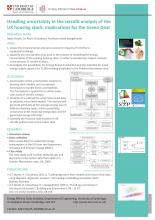 |
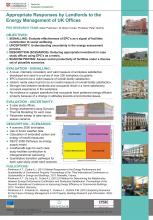 |
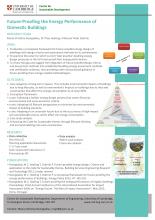 |
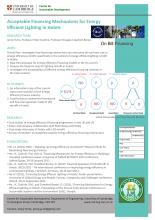 |
|---|---|---|---|
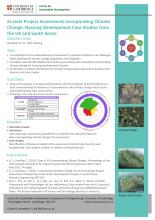 |
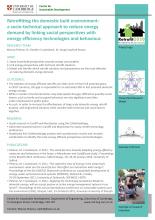 |
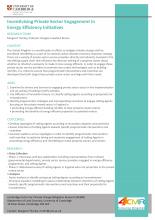 |
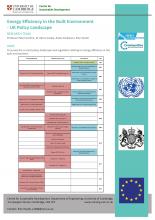 |
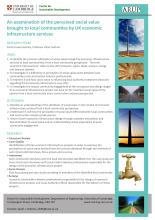 |

